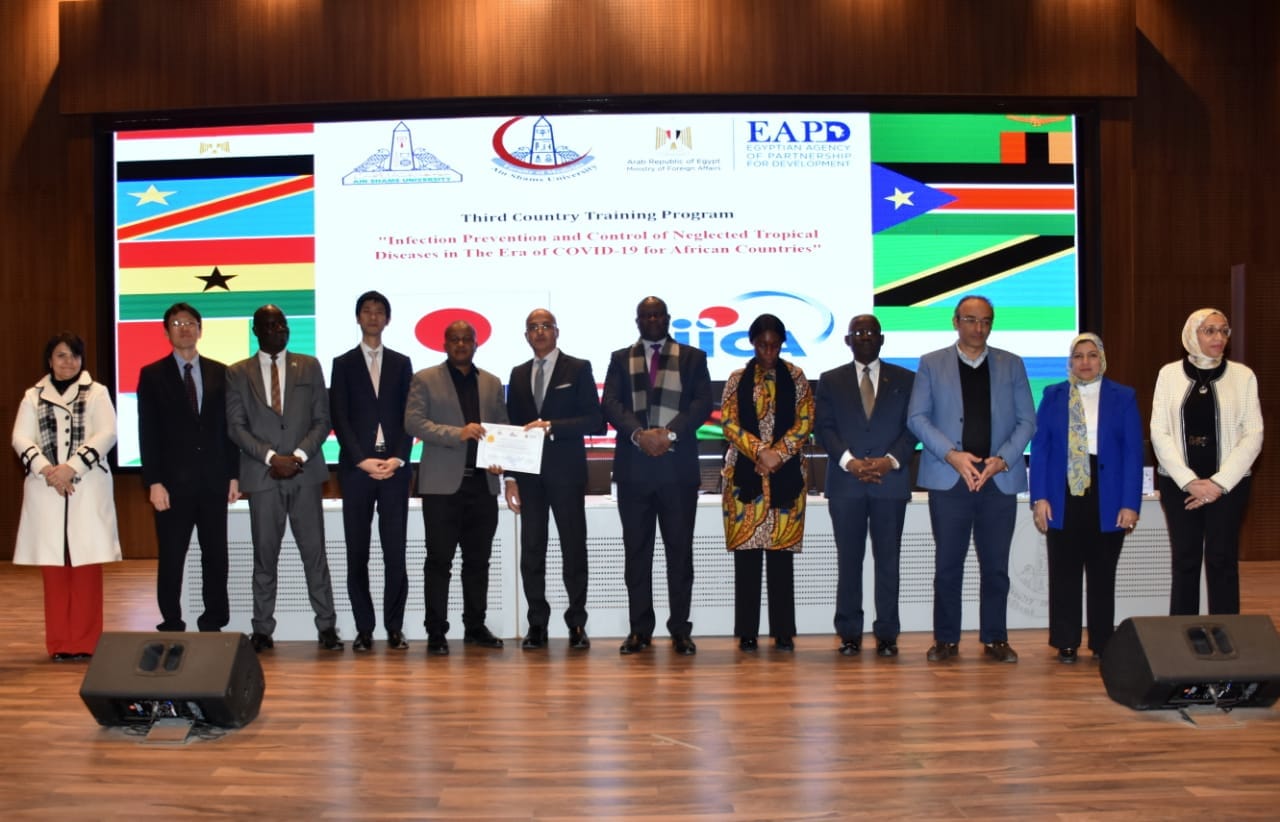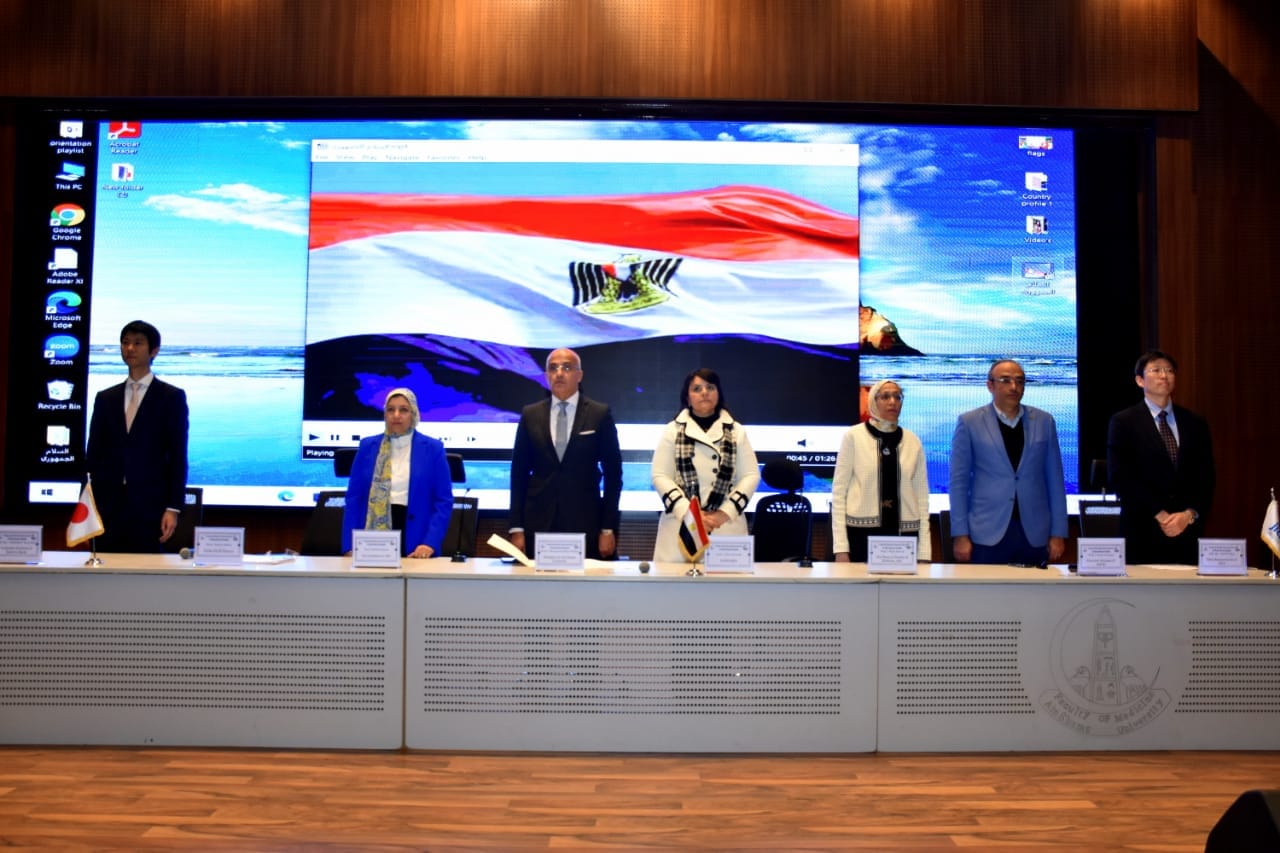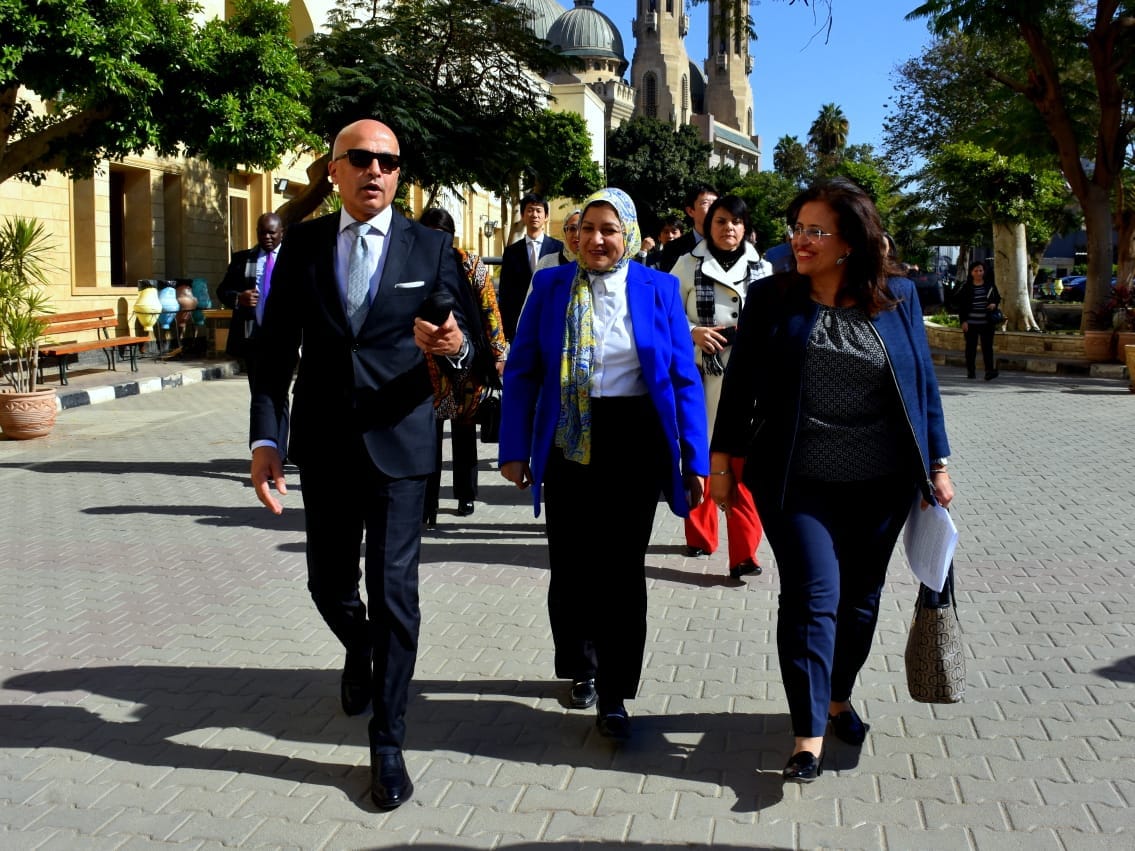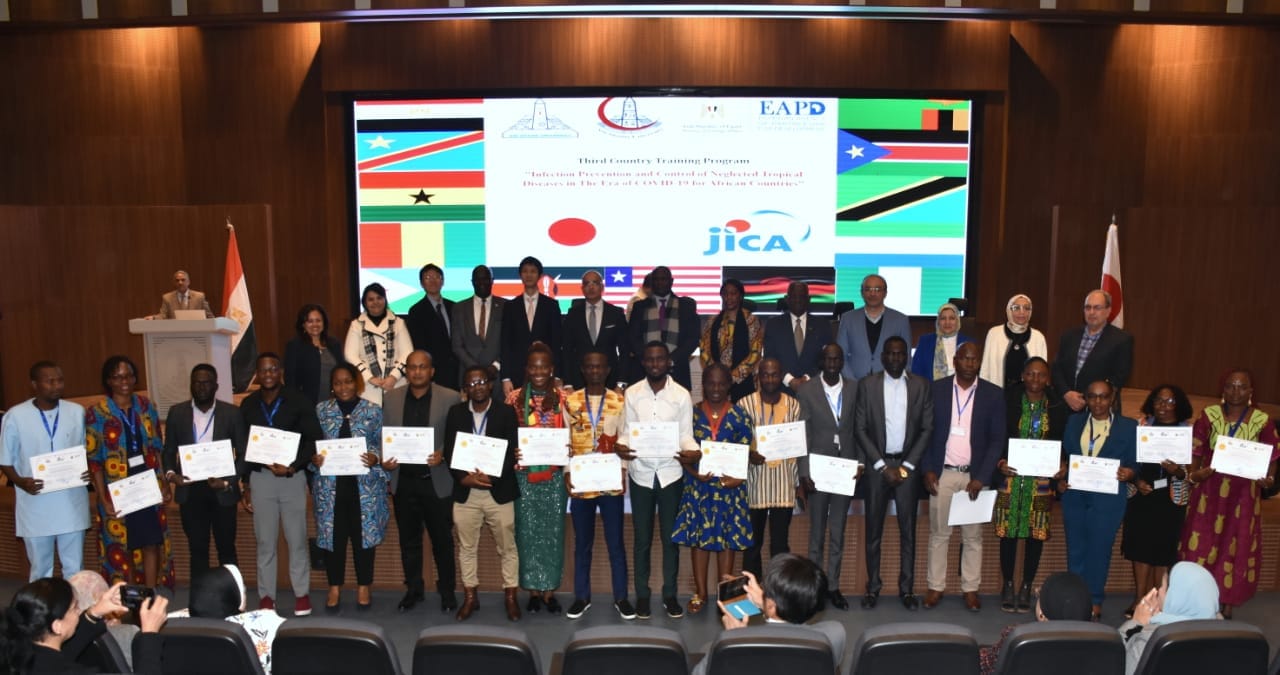The conclusion of the tripartite national training program “Prevention and control of neglected tropical diseases in the era of COVID-19 for African countries” at the Faculty of Medicine
To draw the attention of national governments to the prevention and control of neglected tropical diseases, the Faculty of Medicine, Ain Shams University, under the direction of Prof. Samia Abdo Girgis, Director of the Tripartite Cooperation Programme, the tripartite national training program for the prevention and control of neglected tropical diseases in the era of the Covid-19 virus for African countries, which continued for a month from January 14 to February 8, in cooperation with the Egyptian Agency for Partnership for Development and the Egyptian Ministry of Foreign Affairs, and the Japan International Cooperation Agency, under the auspices of Prof. Mohamed Diaa Zain El-Abedeen, President of Ain Shams University, His Excellency Ambassador Ashraf Ibrahim, Secretary of the Egyptian Agency for Partnership for Development at the Egyptian Ministry of Foreign Affairs, His Excellency the Japanese Ambassador Oka Hiroshi and Prof. Ali Al-Anwar, Dean of the Faculty of Medicine and Chairman of the Board of Directors of University Hospitals.
In the presence of His Excellency Ambassador Alia Hamdy, Ambassador of the Egyptian Agency for Partnership for Development at the Egyptian Ministry of Foreign Affairs, Mr. Shimizu Kazuhiko, Advisor of the Japanese Embassy in Egypt, Mr. Kato Ken, the main representative of the Japanese International Cooperation Agency (JICA) office in Egypt, Prof. Hala Sweid, Vice Dean of the Faculty of Medicine for Community Service and Environmental Development Affairs, Prof. Rania Salah, Vice Dean for Education and Student Affairs, Prof. Tarek Youssef, Executive Director of Ain Shams University Hospitals, and Prof. Samia Abdo, Professor of Clinical Pathology and Director of the Tripartite Collaboration Program.
 |
 |
|
 |
 |
|
In his speech, Prof. Mohamed Diaa Zain El-Abedeen expressed his thanks to the Egyptian Agency for Partnership for Development, the Egyptian Ministry of Foreign Affairs, and the Japanese International Cooperation Agency for their cooperation in implementing the program related to combating neglected tropical diseases, praising all faculty staff and participants of more than 44 professors from 17 departments, departments, and participating units from within the Faculty of Medicine, and 10 professors from universities and external and international bodies.
His Excellency indicated that this training program will enhance the efforts made in the countries of the participating trainees in line with the efforts of the World Health Organization to combat and eliminate neglected tropical diseases and enhance communication between the African participants, the Japanese Technical Cooperation Agency, the experts who facilitate the program, and each other.
Prof. Hala Sweid pointed out that neglected tropical diseases spread mainly in tropical regions, where they affect poor and deprived communities, and cause devastating health, social and economic consequences. The World Health Organization estimates that more than 1.6 billion people need treatment for NTD for at least a full year annually, stressing the Faculty of Medicine’s permanent support for such cooperation.
In her speech, Prof. Samia Abdo appreciated the effort made to help participants during the training period using available inexpensive technologies to achieve the desired goal of preventing and controlling neglected tropical diseases in their countries so that they can design and implement action plans while using the training skills acquired during the program, as well as promoting the acquisition of technical expertise in diverse areas such as management capacity, guideline compliance, disease surveillance, outbreak investigation, other epidemiological tools, and research methodologies; It also directed the need to be able to form a network between African participants, the Egyptian Agency for Partnership for Development, the Japanese Agency for International Cooperation, and the trainers and those responsible for implementing the program.
Her Excellency added that the program also aims to support countries and partners to work together to identify common ground in order to maximize efforts to combat and eliminate neglected tropical diseases based on the World Health Organization’s approach to neglected tropical diseases.
She also explained that the program provides educational resources to support the implementation of activities to prevent or control neglected tropical diseases, in line with the sustainable development goals, and she hoped that the research and development team would emerge from the programs to be a good initiative to eliminate neglected tropical diseases in our home continent, Africa.
A number of videos that African participants in the tripartite cooperation program were trained to implement were also shown in the workshops during the training period.
In conclusion, certificates of appreciation and souvenirs were distributed in appreciation and encouragement to the training program participants.


.svg)




